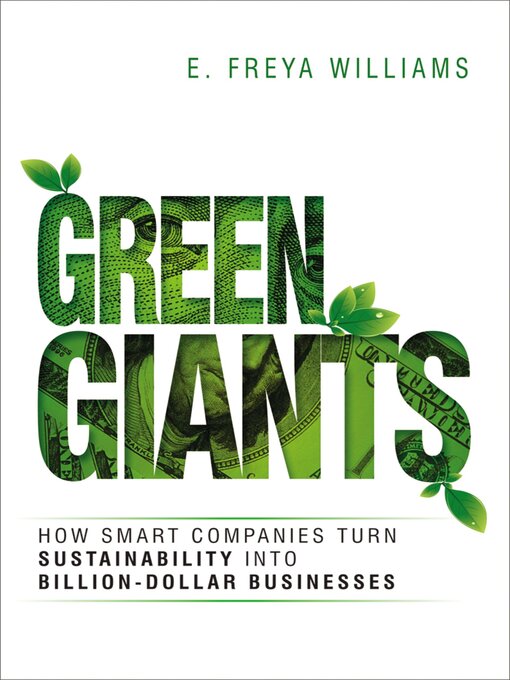What do Brazil's top beauty brand, America's second-fastest-growing restaurant chain, and the world's third bestselling car have in common—besides achieving enormous success with revenue in the tens of billions? They are doing it all while holding to their convictions of implementing sustainable principles that help consumers live better lives. But they aren't the only ones. Green Giants examines nine companies—including Chipotle, Toyota, Unilever, Tesla, General Electric, and more—who have established the blueprint for sustainable success that anyone can follow. Author Freya Williams, an early pioneer of the modern sustainable business movement, discovered six factors responsible for the overwhelming success of these nine socially responsible companies:
Packed with eye-opening research, exclusive interviews, and enlightening examples, Green Giants serves as your blueprint for merging wild profitability with social responsibility.


